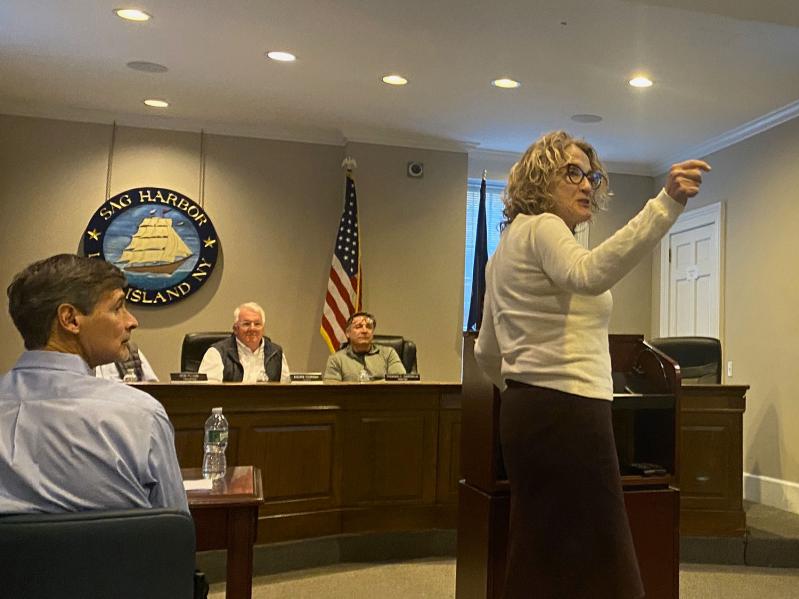The Sag Harbor Village Board was receptive to a pitch on Tuesday to reduce single-use plastics, which the Surfrider Foundation says constitute the bulk of litter found at its beach cleanup efforts.
Mary Ann Eddy, of the village’s environmental advisory committee, and Christine Capelli, chairwoman of the Surfrider Foundation’s Eastern Long Island chapter, pitched a Skip the Stuff law in which restaurants would be required to provide takeout accessories by request only.
According to Upstream Solutions, which advocates for a “reuse” economy without waste, 561 billion disposable food service items are used in the United States every year, 100 million of them plastic utensils, resulting in 4.9 million tons of waste.
Ms. Eddy and Ms. Capelli’s presentation included sobering statistics, such as 17 billion pounds of plastic presently in the oceans. “For a coastal community like ours, I don’t need to tell you what that means,” Ms. Capelli said. Surfrider Foundation volunteers, she said, have recorded data on 179 beach cleanups, including food-service packaging comprising 70 percent of litter, 880 plastic utensils, 362 plastic stirrers, and 1,799 other items under the “takeout stuff” umbrella.
The New York Times reported this week that scientists have found that human brain samples from 2024 had nearly 50 percent more microplastics than samples from 2016, samples showing a median concentration of about five water bottle caps’ worth.
Restaurants, according to the presentation, dispense single-use “stuff” by default, when they are unnecessary and a burden for most customers; can be an extra expense for the restaurant, and cannot be recycled and end up incinerated or in landfills, adding to the plastic pollution crisis, littering streets, beaches, bays, and oceans, entering the food chain along the way. Plastic debris also injures and kills marine life including fish, birds, and mammals. “It’s everywhere,” Ms. Capelli said. “Everyone’s concerned about it, with good reason.”
“We have been told this whole time, plastics can be recycled,” she added, “but the real truth of it is they aren’t.” Only a small fraction is recycled, she said, the rest either incinerated and released as toxic gases or sent to landfills, where some is inevitably dispersed by wind, animals, or runoff.
“But there is an answer,” Ms. Capelli said. “Skip the Stuff is a very simple solution to an extremely complex problem.” Restaurants across the country are participating in the campaign, she said, and East Hampton Village adopted a law last year phasing in a requirement for restaurants to refrain from automatically distributing disposable cutlery and condiments. “If you don’t need them, you just ‘skip the stuff,’ “ she said. “It really is a simple solution that people can opt in to.”
Ms. Eddy suggested an educational campaign this spring and summer while legislation is crafted, followed by passage of a law and a six-month grace period, with the law going into effect in the spring of 2026.
The board made no commitment, but “it sounds reasonable,” Trustee Aidan Corish said.
Also at the meeting, the board held a public hearing on the village’s $15.9 million budget for the upcoming fiscal year, which starts on June 1. With no public comment, the hearing was closed, and the board later voted to adopt the budget.
The board also set May 13 as the date of a public hearing to amend the village code with respect to accessory dwelling units. The hearing will follow a March 27 public workshop to consider how to make creation of such dwellings easier for property owners.




